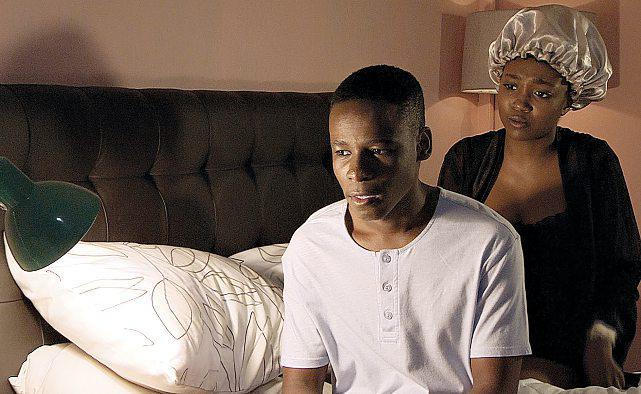In today’s society, the archetype of a single dad is often overlooked amidst the more celebrated narratives surrounding single mothers. Yet, the challenges that solo fathers face are both pervasive and complex. What happens when that father wears the manifold hats of caregiver, educator, and provider all at once? What struggles do they endure in a world that frequently judges conventional competency through a maternal lens? The realities of being a single father are fraught with unique challenges that warrant a thoughtful examination.
The emotional landscape of single fatherhood is a tapestry woven with threads of love, anxiety, and determination. Single dads often grapple with the manifestation of societal expectations that dictate what it means to be a “good” parent. Often, they feel the weight of the world on their shoulders. In many cases, these fathers are navigating the murky waters of co-parenting, particularly if their separation from the child’s mother was less than amicable. Misunderstandings can arise, leading to conflict and emotional stress. The chronic stress associated with these dynamics can sometimes overshadow the beautiful moments of parenting.
Financial instability is another significant challenge faced by many single fathers. According to numerous reports, single-parent homes have a significantly higher risk of poverty. Without a dual-income household, even the most diligent budgeting can fall short when unexpected expenses arise. This can lead to a precarious situation, where the basic needs of the child—food, clothing, shelter—hang in the balance. Can a father fulfill the role of both nurturer and provider effectively under such conditions? The answer lies in resilience, creativity, and an unwavering commitment to their child’s welfare.
Furthermore, societal stigmas surrounding single dads contribute to their struggles. In various cultures, the stereotype that fathers are inherently less capable in nurturing roles persists, creating an environment where single fathers may feel judged or unsupported. They often encounter questions that subtly imply inadequacy: “Where’s their mother?” or “Are you really able to handle this?” Such inquiries can erode self-confidence and create an unwelcoming atmosphere for both the father and the child. It raises an important question: how can society work to dismantle these stereotypes and provide necessary support to fathers in similar situations?
The logistical maze of parenting alone presents its own set of hurdles. Coordinating school schedules, extracurricular activities, and household chores can be daunting. There’s a profound irony in juggling responsibilities while striving for balance. As a father, one might find themselves wondering how to manage it all without faltering. With many single dads holding down full-time jobs, the quest for time becomes a near-epic journey. Every moment spent attending to one obligation feels like a moment stolen from another. Unfortunately, this often leads to self-neglect.
Self-care, something that is often discussed yet scarcely practiced, is vital for single fathers. Burnout can occur when their well-being takes a backseat to obligations. When emotional, physical, and mental health are compromised, the quality of parenting can deteriorate. Thus, the question arises: how does one carve out time for self-nurturing amidst the chaos? Innovations in time management and prioritization become invaluable tools, allowing fathers to reclaim energy and focus. Whether it’s a weekly yoga session, a short run, or simply an hour with a favorite book, these moments of reprieve can recharge the spirit.
Culturally, representations of fathers in media do little justice to the multifaceted nature of solo parenthood. The trope of the ‘clueless dad’ often dominates popular narratives, perpetuating the misunderstanding of male caregivers as bumbling and unable to connect with their children. This caricature fosters an unhealthy view that undermines the profound experiences that single dads encounter. The portrayal of fathers in popular culture can be expansive and nuanced. When these representations evolve, they can create more opportunities for empathy and understanding amongst communities.
Furthermore, support networks play a critical role in providing single fathers with the camaraderie they often lack. Engaging with other dads through support groups or parenting classes can cultivate friendships that are invaluable. They provide emotional support, share insights, and foster a sense of belonging. The relationships formed can serve as lifelines during trying times, affirming that no father should have to navigate the tumultuous seas of parenthood alone.
As society evolves, so too must the conversation surrounding single fatherhood. The need for increased awareness and education on the realities faced by solo fathers is paramount. From advocating for workplace policies that support flexibility to ensuring access to resources such as affordable childcare, communities can take substantive strides towards improving the conditions for single dads. Collectively, we must recognize that single fathers are not simply relegated to a secondary role; they are dynamic, engaged, and capable of contributing profoundly to their children’s lives.
In conclusion, the journey of a single father is laden with complexity and strength. It encompasses a narrative that interlaces resilience with vulnerability, love with struggle. Acknowledging the challenges faced by solo dads not only elevates the dialogue around fatherhood but also emphasizes the need for continued societal support. As we move forward, let us embrace the reality that single fathers are not an anomaly, but rather an integral part of the parenting mosaic. What will it take for society to fully embrace and support them in their significant roles? This is a question that merits ongoing reflection as we navigate the path toward inclusivity and understanding in the realm of parenting.
